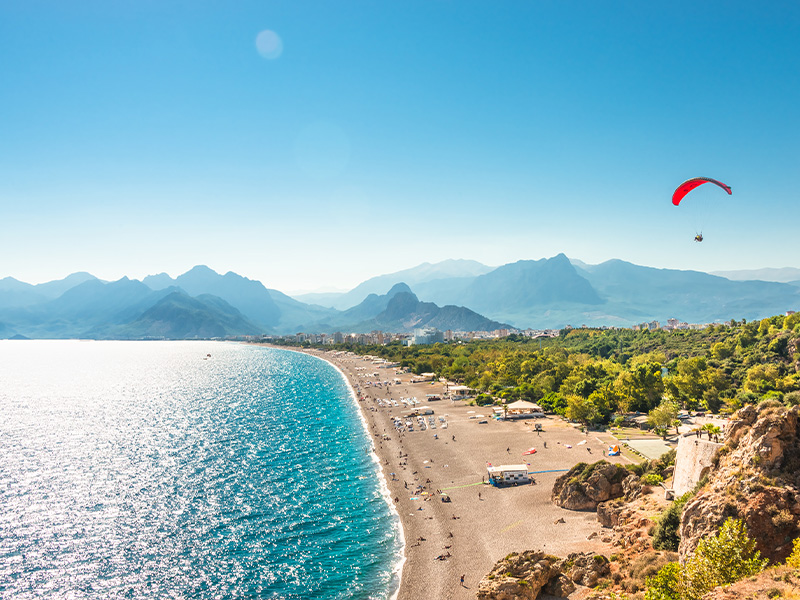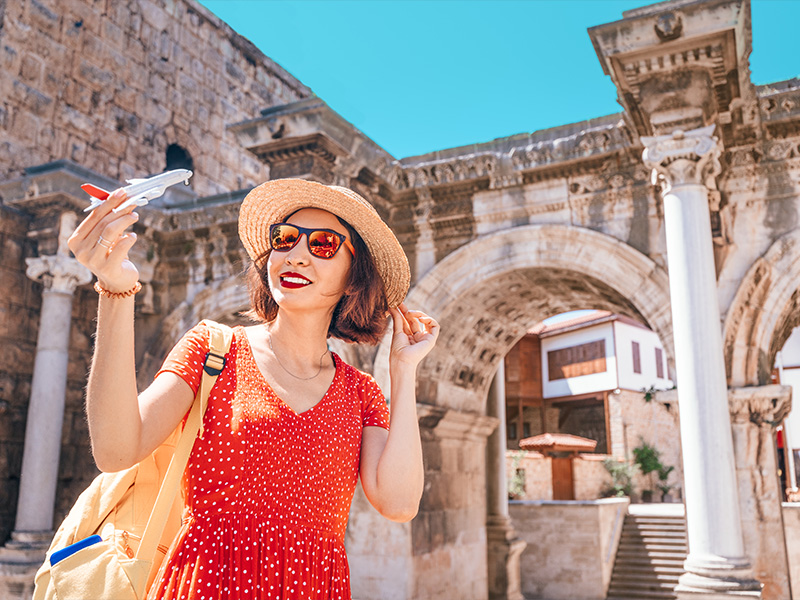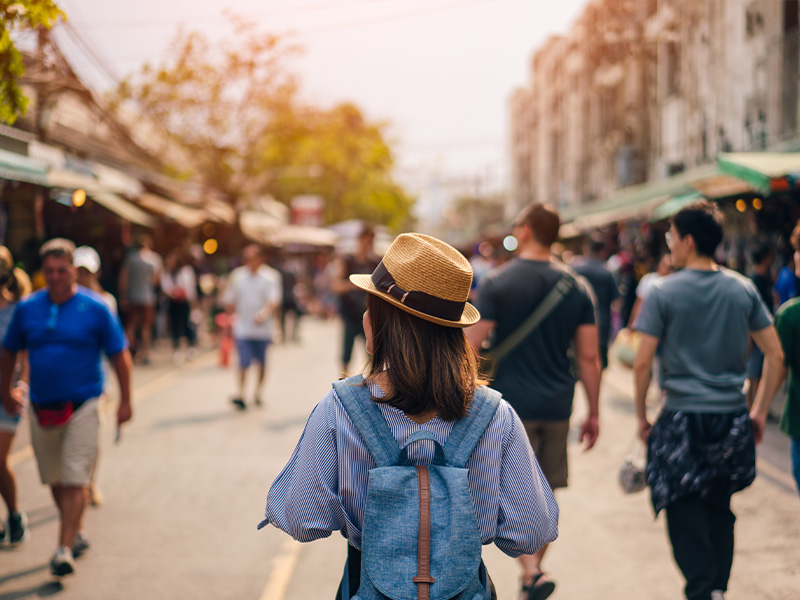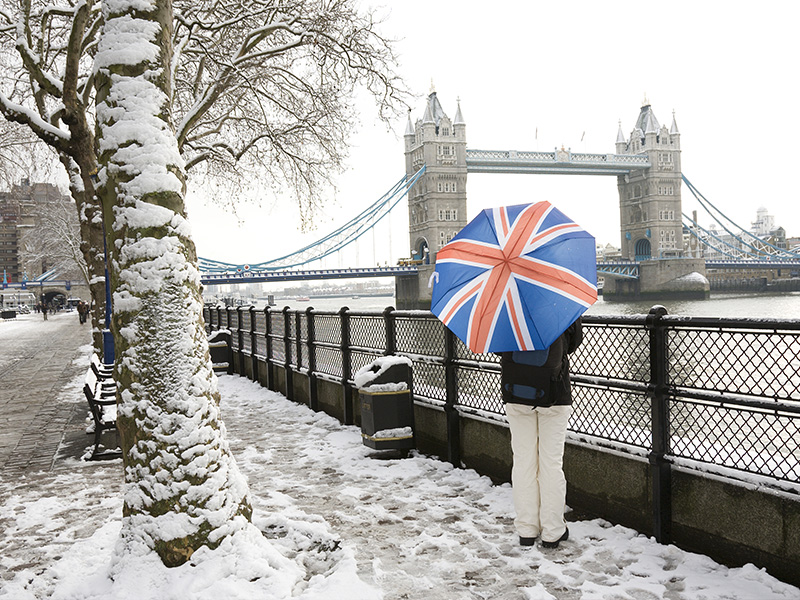Oftentimes when we ask an experienced traveler about the best time to visit a certain destination, we get answers like “the high season for this destination is spring” or “tickets are cheaper off-peak”. But what are these peak and off-peak travel seasons? What do high or low seasons actually signify? Let us find out together.
Basically, during peak travel times to a particular location, many tourists visit the area while the off-peak season refers to a period of time when fewer tourists would care to visit the area due to a variety of reasons.
Book Iran Air flights from London to Tehran and Tehran to London with Eligasht uk:
Peak and Off-Peak Travel Seasons
| Pros of peak season
| · Experience the best weather · All tourism services are available
|
| Cons of peak season
| · Fewer accommodation choices · Higher prices · Congestion · Having to book in advance |
| Pros of off-peak season
| · Fewer tourists and less congestion · Better prices
|
| Cons of off-peak season
| · Sometimes tough weather conditions · Unavailability of some services |
Peak Travel Season (High Season)
During this season, destinations usually experience their best weather, or it may be a good time to travel to a particular destination because there is a public holiday going on at that time. Examples of peak and off-peak travel seasons that are defined by weather include: Places like Iceland, Spain, Italy, and Portugal experience their peak seasons during warmer weather while the peak travel season to Dubai, Switzerland New Zealand tends to happen during the colder seasons.
Sometimes, the peak or high season is said to be when a special event occurs in a specific destination, for example, in Kenya, the season of great migration is considered high season even though the weather may not be that good.
Traveling during peak travel times as a tourist can sometimes be a bit of a challenge; Almost everyone wants to travel to their desired destination in a season where it offers the best weather, just like you. Some common issues that tourists face traveling during the peak seasons include:
- Congestion of tourist attractions
- Not being able to find plane tickets or other means of transportation
- Tickets are expensive
- Early filling of accommodations
- Accommodations are expensive

During peak travel seasons, many tourists would want to visit a certain destination. As a result, the cost of accommodation, flights, and even taxis will go up in some of these places. If you want to travel during the high or peak seasons, make sure to plan your trip some time in advance and book a hotel, flight, train, bus, and everything else that has something to do with transportation or accommodation. Booking in advance usually equates to lower prices.
Shoulder Travel Season
Traveling just before or after the peak seasons can be one of the best times to visit an area, this golden time is called the shoulder season. The weather is not as good as it usually is during the high seasons, but it is still pleasant enough and there will be fewer tourists in your desired destination which promises less congestion.
Shoulder season is the season between “high season” and “low season” or peak and off-peak travel seasons. During the shoulder season, tickets are easier to find and will also be offered at lower prices compared to the peak season. Many experienced tourists consider this season to be the best time to travel.

Off-Peak Travel Season (Low Season)
Traveling during the off-peak season means that you will experience the lowest prices and also get to see your favorite attractions in the quietest time. Off-peak or low season is a time when tourists will not be very interested in traveling to a specific destination; Some of the reasons why this may be include:
- Unfavorable weather: for example, rainy seasons, cold or excessively hot temperatures.
- Lack of desired services: for example, it is possible that in the peak season in a certain destination, local markets or special celebrations will be held that you will not experience in the low season or that since there are not enough tourists in the area, you will not have access to the services that visitors are normally provided with during the peak seasons.
But Travelling during the off-peak seasons also comes with its own set of advantages:
- You can get the best photos because the crowd will not bother you or block your view.
- Due to the lower prices, you may be able to treat yourself to a quality vacation instead of just another trip. You can travel first class or find suites or deluxe rooms at a lower price in hotels.
Summing Up Peak and Off-Peak Travel Seasons
Traveling in the off-peak season means that you will probably have the best chance of finding good prices. Traveling in the peak season will usually mean getting to see the attractions in the best possible weather, but you should also consider the higher prices and the congestion.
In general, traveling in any season is better than not traveling at all! We travel to experience new things, and different cultures and generally get out of our own shells. While peak and off-peak travel seasons do not necessarily have to define when you choose to visit a location, they can be taken into consideration when making a final decision that benefits everyone.



